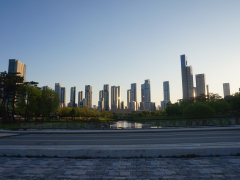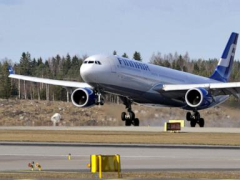Sejong, South Korea – By the standards of South Korea’s teeming metropolises, Sejong is not much of a city.
With a population of 400,000 people, Sejong, a planned city located about 100km (62 miles) south of Seoul, does not even crack the top 20 urban centres.
But if South Korea’s likely next president has his way, Sejong could soon become the country’s “de facto” capital.
Lee Jae-myung, the overwhelming favourite in Tuesday’s presidential election, has pledged to relocate the presidential office, legislature and numerous public institutions to Sejong as part of a renewed push to establish a new administrative capital.
“I will make Sejong the de facto administrative capital and Daejeon a global science capital,” Lee said in the run-up to the election, referring to the nearby central city.
“I will also push for the complete relocation of the National Assembly and presidential office to Sejong through social consensus.”
Sejong was conceived of in 2003 by late President Roh Moo-hyun, who believed that moving the capital would achieve the twin aims of reducing congestion in Seoul and encouraging development in South Korea’s central region.
Roh’s ambitions for Sejong were dealt a setback the following year when the Constitutional Court ruled that Seoul should remain the capital.
While the prime minister’s office and about a dozen ministries have moved to Sejong over the years as part of successive governments’ decentralisation efforts, Seoul has remained not only the official capital but also the centre of political, economic and cultural life.
Greater Seoul is home to about 26 million people – half of South Korea’s population – and most of the country’s top companies, universities, hospitals and cultural institutions are clustered in the region.

On a recent Friday afternoon, Sejong’s wide streets were mostly quiet, a world away from the bustling alleyways of downtown Seoul.
At the city’s express bus station, a number of government workers were waiting on a bus to take them to the capital.
Kevin Kim, a 30-year-old civil servant, travels to Seoul for the weekend at least twice a month.
“My family, friends and girlfriend are in Seoul,” Kim, who has lived in Sejong for nearly two years, told Al Jazeera.
“I have to go to Seoul, as all the big hospitals are there.”
Lee Ho-baek, who works for a start-up in Sejong, also visits Seoul several times a month.
“There just isn’t enough infrastructure or things to do in the city for us,” he told Al Jazeera, explaining that he is not sure if he will stay much longer despite having moved to Sejong only a year ago.
After years of roadblocks to Sejong’s development, including concerns about costs and constitutional legitimacy, candidate Lee’s pledge has stirred tentative signs of growth in the city.
In April, real estate transactions increased threefold compared with the same period the previous year.
But with Sejong’s fortunes so closely tied to the changing whims of politicians, there are concerns about its long-term sustainability.
During discussions about the possible relocation of the presidential office and legislature by Lee Jae-myung’s Democratic Party in 2020, apartment prices jumped by





